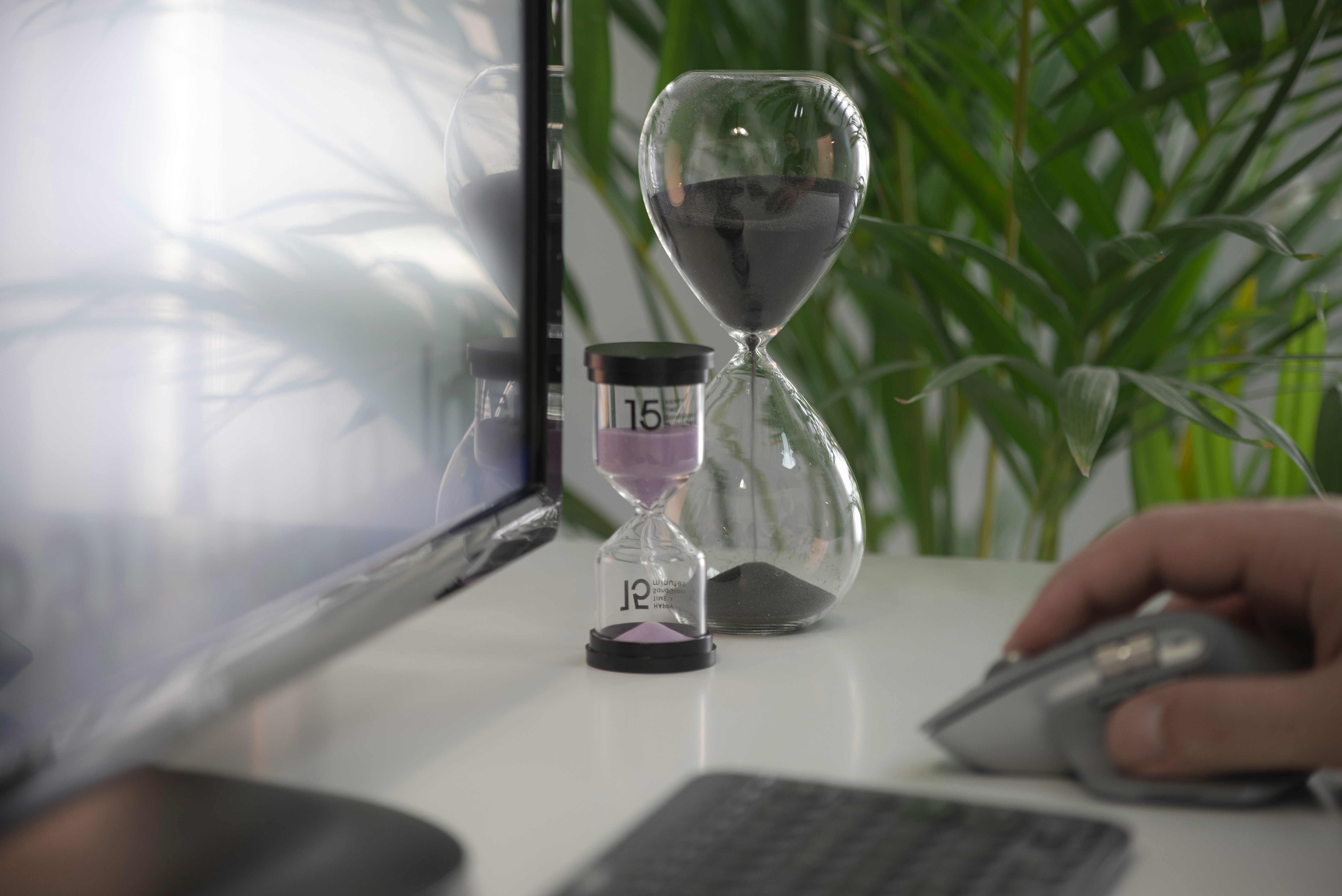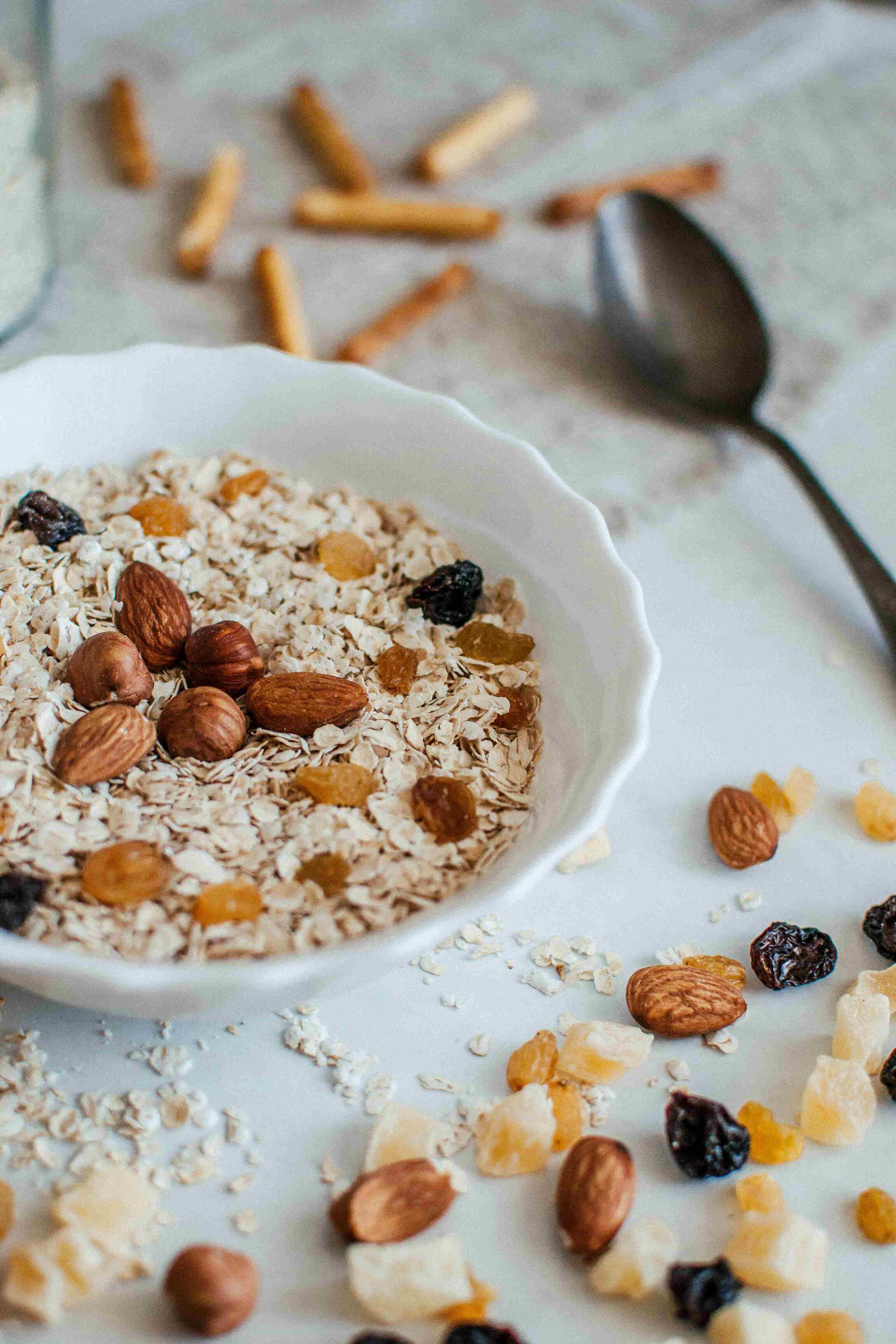9 Proven Strategies and Signs of High-Functioning Anxiety
June 4, 2024

Because it hurts, you don't have to let your worry run your life. Here are nine tried-and-true ways to reduce stress, and generalized anxiety disorder and improve efficiency. With healthy routines and mindfulness exercises, we will provide you with the means to lessen anxiety disorders and feel more in control and at ease. Stay tuned for more actionable tips on how to tackle anxiety head-on!
Strategy 1: Tame Your Anxiety Disorders Through Mindfulness Health and Wellness
This type of Anxiety disorders with a high prevalence are often caused by people who suffer from high-functioning anxiety. Mindfulness and meditation are two techniques that may help people who are feeling anxious. Mental health professionals can help you focus on the present moment instead of dwelling on the past or the future.

Here's how coping with high functioning anxiety works:
• Pay Attention to Your Breath: Focusing on your breath is the best way to start meditating. Every time you breathe in and out, your chest should rise and fall. Feel free to write down any thoughts you have in your body without judging them.
• Calm your mind: Priorities self-care, thoughts will come to you. When they happen, softly notice them and bring your attention back to your breath.
• Benefits beyond relaxation: Studies show mindfulness can reduce level of anxiety and worry symptoms, improve focus, and promote better sleep.
Are you ready to try it? Here are a few guided meditation exercises to help you get started. A little time and some simple tools are all that's required.
Strategy 2: Physical Activity - Move Your Body, Reduce High-Functioning Anxiety
In addition to making you stronger, exercise can help with worry. Allow me to explain:

The Science Behind Managing High-Functioning Anxiety Symptoms:
• Endorphin rush: exercise makes your body release endorphins, which are natural mood boosters. This can combat anxiety and leave you feeling happier. Think of it as a happiness booster!
• Less worry: Exercise lowers stress hormones like cortisol. You can feel more in control and focused if you calm down your body's response to stress. To reset your fight-or-flight response is like pressing the "reset" button.
• Better sleep: regular exercise helps you sleep better, which is important for dealing with anxiety. Sleeping well helps you handle the stresses of daily life better. Anxiety may be a lot lessened after a good night's sleep. Maintaining a balanced level of serotonin can be achieved with adequate and quality sleep. As a result of insufficient sleep or sleep deprivation, neurotransmitters, including serotonin, are disrupted, potentially resulting in mood disorders such as depression.
How Does One Handle Situations When Their Anxiety Is High-Functioning?
Trying out different exercises could be a lot of fun! No matter your level of fitness, we offer a yoga session that will suit you. A gym membership is completely unnecessary! Going to stay in or hit the gym? Something can be done. Give yourself permission to do what makes you happy. Also says Dr Maya Pinjala, Ph.D.,
“People with high-functioning anxiety are often successful in work, school or at home. But they also experience ongoing worry and stress. Some of these individuals may have an anxiety disorder but don’t recognize it, or hesitate to get help for fear of being judged. That’s why we want to raise awareness about anxiety symptoms and treatments that improve quality of life and overall health.”
Gradually increase the amount of time and effort you put in until you achieve your goal. A simple outside stroll could be quite beneficial.
Making Exercise a Habit: Simple Strategies for Daily Movement
Making time for exercise is achievable, despite the fact that it may seem impossible with the visible physical symptoms of high-functioning anxiety. Making exercise a regular part of your life can help your physical health in the following ways:
Small Steps, Big Results:
• Start with just 10 minutes. Efforts made in brief intervals build up! Nothing beats getting moving, even if it's just a fast jog around the block or a fast walk during lunch.
• Find activities you enjoy. No one said working out had to hurt. Get moving by going for a hike, dancing, or perhaps trying rock climbing. You are more likely to keep doing what you enjoy.
• Sneak it in throughout the day. When you go to the gym, take your time. Instead of taking the elevator, walk or do jumping jacks during commercial breaks, and park farther away from where you want to go. Every little bit counts!
How to stop experiencing high-functioning anxiety?
Finding motivation and time to get things done is something we completely understand. Professionals in mental health make workout plans just for you based on your preferences and schedule. Are you missing out on a gym membership or any of that fancy gear? Sure thing! If you're looking for some workouts that you can do using only your body weight, there are plenty of options.
Using these techniques on the spot can help you or an individual with high-functioning anxiety to control your anxiety, no matter what kind of anxiety you have.
Strategy 3: Cognitive Behavioral Therapy (CBT) - Challenge Your Thoughts
Individual with high-functioning anxiety often cause themselves to stuck in negative thoughts? Cognitive Behavioral Therapy can transform. It's an effective method for identifying and counteracting anxious thoughts supported by evidence.

Here's how CBT works to treat high-functioning anxiety
• Identifying the Root Form of Anxiety: We teach you to spot the false beliefs that sustain your high-functioning anxiety. Examples include making broad assumptions ("They must think I'm incompetent!"), making extreme predictions ("This presentation will be a disaster!"), and making overgeneralizations ("I always mess up"). Anyone dealing with GAD will find this to be an invaluable resource.
• Concerning the Evidence: Cognitive behavioral therapy teaches you to carefully consider the evidence for these beliefs. How realistic are they? Are other possible reasons? Let's say "Most presentations have minor hiccups, and I can prepare to handle them."
• Making Headway: You can build better coping mechanisms by replacing negative thoughts with more balanced and realistic ones.
We'll Help in Coping Signs and Symptoms of High Functioning Anxiety:
There are many program that provides CBT skills. A optimistic outlook and the ability to overcome GAD are both aided via workbooks, interactive activities, and guided games. Two goals of cognitive behavioral therapy (CBT) are to lower anxiety and make people healthier in general.
Applying CBT Techniques Daily to Reduce Signs of High-Functioning Anxiety
CBT is more than simply a treatment; it's a toolkit that you may use every day. Apply those effective CBT techniques:
Make a Reversal: Pay attention to your ideas all day long, but particularly when HFA hits. Pay attention to any negativity in your thinking.
Put an End to It: Raise doubts about the proof of those claims. Do they have any merit? Do you think you can reframe things so they are more balanced?
Practice Makes Progress: Refuting destructive ideas and replacing them with more constructive ones is easier with practice. To help you hone these abilities, we provide workouts every day.
Practical Scenarios: We provide scenarios that are based on real-life anxiety-provoking circumstances. Acquire CBT skills to face anxieties and obstacles with assurance.
Be aware that CBT is more of a journey than a destination. A better and more satisfying life is within your reach when you learn to manage your anxiety and enhance your behavioural health through regular practice.
Strategy 4: Not Managing Time Causes High-Functioning Anxiety
Take Control of Your Day
Help with an endless to-do list? Time management can be your anxiety-fighter. Here's why:
Why It Matters:
• Stress Reduction: You're less likely to experience tension and anxiety when you have control over your schedule.
• Productivity: Getting more done in less time is possible when you prioritise your tasks and set realistic goals.
• More free time: A decrease in high-functioning anxiety and an increase in relaxation can be achieved through effective time management, which frees up time for enjoyable activities.
For Therapists!
We're familiar that the therapists when they're digitalizing their business for better outreach, may often face difficulty managing their time on website handling.
Leave your worries on us! as Web Design For Therapist provides affordable therapist web design. We'll manage from developing the site to its onling branding. Contact Now!
Taming Your To-Do List: Practical Time Management Tips
Feeling swamped? Time management hacks can help you conquer your day and reduce high-functioning anxiety. Here are some actionable tips:

Plan and Prioritize:
• Craft a Daily Schedule: Block out time slots for specific tasks. This creates a roadmap for your day and prevents feeling scattered.
• Prioritize Ruthlessly: Not all tasks are created equal. Identify the most important ones and tackle those first.
Outsmart Distractions:
• Silence the Sirens: Put your phone on silent and close unnecessary browser tabs. Focus on the task at hand for dedicated periods.
• Schedule Breaks: Taking short breaks helps improve focus. Take a break, then return invigorated and ready to tackle your next activity.
Conquer Procrastination:
• Break it Down: Are you feeling overburdened by a big task? Divide it into digestible chunks. This is simpler to get started with and less scary.
• Reward Yourself: By marking accomplishments! Tiny rewards can assist you in staying on course.
Strategy 5: Healthy Diet and Nutrition - Food for Calm
Eating habits have a big influence on high-functioning anxiety. This is the reason why:
The Food-Mood Link:
• Nutrient Power: A number of nutrients, including omega-3 fatty acids, magnesium, and B vitamins, are involved in mood regulation and brain function. Individual with high-functioning anxiety tend to feel exacerbated by deficiencies.
• Blood Sugar Swings: Blood sugar goes up and down quickly when you eat sugary or refined carbs. Due to this, people with high-functioning anxiety may get symptoms like tiredness and worse irritability.
It's Important to Stay Hydrated: Headaches and hazy thinking are two high-functioning anxiety symptoms that dehydration can mimic. Water consumption hydrates and enhances health.

Fuel Your Well-Being:
Nutrient-rich foods are part of our meal plans to help reduce anxiety. We provide individualised meal regimens that will fuel your body and mind.
Eat healthily without having to worry about it. We'll work with you to make little, long-lasting changes that will help you relax.
Building Your Plate: Tips for a Balanced Diet Plan
Need assistance with intricate meal plans? Anxiety management doesn't require drastic lifestyle adjustments. How to maintain a healthy eating balance:
Focus on Whole Foods:
• Fruits and Veggies: Arrange a rainbow of produce on your plate. Minerals, vitamins, and mood-enhancing antioxidants are abundant.
• Whole Grains: Relish whole-wheat bread, brown rice, or quinoa instead of processed carbohydrates. They provide you steady energy and prolong the sensation of fullness.
• Lean Protein: Make sure your meals contain sources of protein such beans, chicken, or fish. Neurotransmitters that affect mood are regulated in part by protein.
Don't Forget the Extras:
• Good Fats: Consume good fats, such as those in nuts, avocados, and olive oil. They enhance mental well-being and augment sensations of fullness.
• Limit processed Foods: Anxieties can get worse if you consume sugary beverages, processed foods, and too much saturated fat.
Get Your Plate Covered:
There are customisable meal planning to make eating healthily easier. Which also include to have many delicious, simple-to-prepare recipes that can reduce anxiety. Find out how small dietary changes might improve your health and emotions.
Strategy 6: Building a Strong Support Network - You're Not Alone!
The Role of Social Support in Managing Anxiety
Social anxiety disorder may get worse if one feels alone. Having a stronger support system helps get you through difficult times. Why social connection is important is as follows:

The Power of Connection:
• Reduced Stress: Talking to someone you trust about your concerns can help take some of the pressure off and relax you.
• Sense of Belonging: Feeling safe and happier when you know that people care about you.
• Different Perspectives: Being around supportive people can boost your confidence and validate your emotions, which can help you view problems in a newly formed way.
How can someone with high-functioning anxiety get help?
Someone with high-functioning anxiety may isolate themselves from others in their social circle.
Need assistance getting around? You're not alone. We can put you in touch with beneficial services and support networks:
Managing Your Anxiety in Great Numbers!
• Support Groups: Anxiety sufferers can find local and virtual support groups in our directory. Find somebody to talk to who have been through the same things you have.
• Mental Health Treatment Organizations: Access to advocacy information, support groups, and educational materials is made possible through partnerships with organisations such as NAMI.
Finding the Right Fit:
Not sure which choice is ideal? Find a support group that works for you with our assistance. Choose between in-person meeting ups or complete anonymity when you use our service.
Additional Resources:
Anxiety resources abound in our library. Would you like some help deciding which option is ideal for you? If you would like assistance locating a support group, we are here to help.
Strategy 7: Mind Your Mood Swings
Form Of Anxiety: Limiting Caffeine and Alcohol Intake
Are you on edge and anxious? Caffeine and alcohol, contrary to popular belief, can amplify anxious feelings and exacerbate GAD. Make some simple adjustments to your daily routine to alleviate your anxiety and boost your health. No matter how small, taking care of yourself is always beneficial.
The Caffeinated Rollercoaster:
Anxiety Amplifier: cause of its effects on the central nervous system and heart rate, caffeine has the potential to amplify anxiety. Anxiety can be exacerbated since it interferes with sleep.

Alcohol's Deceitful Calm:
Temporary Relief, Lasting Impact: Anxiety typically returns, and in some cases becomes even worse, after alcohol's effects wear off, even though it may give a momentary relief.

Find Balance in Coping with High-Functioning Anxiety:
How to drink and use coffee less can be helped by us. Use healthy ways to relax and stay away from worry. See how small changes to your drink can help you feel less anxious.
Cutting Back: Strategies for Reducing Consumption
We understand how you feel when you're too high on caffeine and booze. Here are some useful tips to help you spend less:
Small Steps, Big Impact:
• Track Your Intake: Getting aware is key. For a few days, keep track of how much coffee and alcohol you drink every day. This helps find places where costs can be cut.
• Swap it Out: Herbal teas or water with fruit slices should be drunk instead of coffee or soda. For social events, try mocktails that don't contain booze.
Tapering Off Gradually:
• Slow and Steady Wins: Do not quit all of a sudden! Slowly cut back on what you're taking in over time. This lessens the signs of withdrawal and makes the process easier to handle.
• Find Your Triggers: Figure out what makes you want coffee or drink. Look into other ways to deal with worry or social anxiety.
Causes of High-Functioning Anxiety
High-functioning anxiety can feel like a constant hum of worry in the background. Even though you might appear put-together on the outside, inside you might be feeling on edge. So, what causes this feeling?
It's a Mix of Things:
• Background: If anxiety runs in your family, you may be more likely to get it too.
• Brain Chemistry: Unbalances in the chemicals in the brain can sometimes make anxiety worse.
• Life Experiences: Anxieties can be triggered by any stressful event, regardless of how recent or far away it occurred.
• Personality traits: Being shy, being a perfectionist, or having an overthinking tendency can all make anxiety worse.
Not a Character Flaw:
Take a moment to remember that it's not your fault that you worry a lot. You can get help for this real illness.
Feeling on Edge? Symptoms of High-Functioning Anxiety
You might be able to reach your goals even if you have high-functioning anxiety, but it can make everyday things stressful. Follow these warning signs:
Anxiety Symptoms:
• Constant Low-Level Anxiety: You might always be accompanied by uneasiness or anxiety.
• Overthinking Everything: The thought of making a mistake or thinking about "what if" situations keeps coming back to you.
Physical Signs:
• Tension and Headaches: Some of the symptoms of anxiety include persistent headaches or a generalised feeling of tension.
• Sleep Trouble: It is common for people with high-functioning anxiety to have problems falling asleep or staying asleep.
Exhaustion and Irritability:
• Feeling Drained: One common symptom of anxiety is feeling completely drained and worn out.
• Easily Frustrated: You may often find yourself feeling irritable or easily angered.
Remember:
Although these symptoms may not be immediately noticeable, it is crucial to seek assistance if they are interfering with your daily life.
You've Got This—Conclusion!
It's normal to feel nervous sometimes. But these tips can help you have fun even when those feelings are getting in the way.
It takes practice to deal with worry, just like it takes practice to learn a new bike trick. You can become an anxiety-fighting ninja, though, if you get some cool tools and help from an adult (like your parents or teachers!).
There are a lot of games, tasks, and facts here to help you on your way. Don't forget that you're stronger than you think and that you're never alone!
